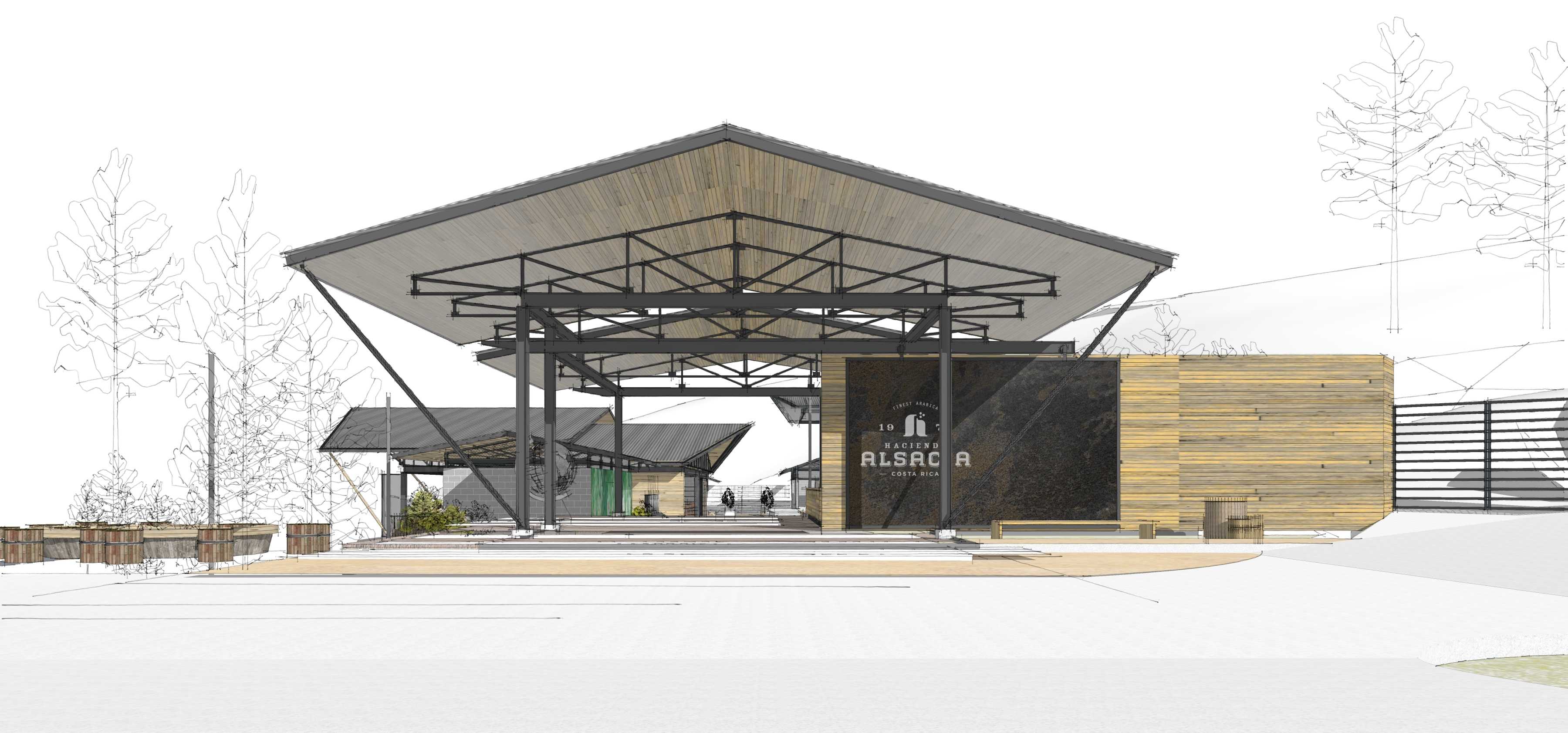SEATTLE, U.S. – Starbucks Coffee Company will be developing a visitor center on the grounds of its wholly owned coffee farm, Hacienda Alsacia (in the PICTURE a rendering of the center).
Purchased almost four years ago, Hacienda Alsacia is located in Costa Rica on the slopes of the Poas volcano and serves as a global Research and Development facility and working farm for Starbucks.
The new facility will soon allow visitors from around the world to get a first-hand understanding of the agronomy work the company has been supporting and investing in for two decades.
“Our Roastery in Seattle, Washington offers one of today’s most immersive retail experiences, where the theater of coffee craft is on full display. We have a tremendous opportunity to demonstrate what happens on coffee farms so that our customers understand the humanity and care that goes into each cup of our coffee,” said Cliff Burrows, group president Siren Retail and Global Coffee, Starbucks.
“This visitor center allows us to create a connection between the people that grow the coffee, the role our farm plays in helping to ensure their economic stability, and the stores that roast and brew it for our customers every day.”
Visitors of the Hacienda Alsacia farm and café will be able to explore a 46,000-square-foot area located on the Starbucks farm allowing them to engage in the journey of coffee from seedling to coffee field, the wet milling process, drying patio all the way to roasting and brewing.
Designed by members of its in-house design team who helped pioneer the company’s first Starbucks Reserve® Roastery in Seattle, this locally relevant, sustainable ecosystem will pay homage to the more than 1 million coffee farmers and workers that Starbucks helps to support around the world.
Since purchasing the 600-acre (240 hectares) farm in March 2013, Starbucks has maintained it as a typical working farm to learn more about the resources necessary to grow high-quality arabica coffee. In doing so, it has helped to inform its multi-million-dollar investment in ethical sourcing resources for coffee farmers including:
- A firsthand understanding of the company’s Coffee and Farming Equity practice (C.A.F.E.) sourcing standards, developed with Conservation International, in maintaining healthy coffee trees which resulted in a nearly 50% increase in yield on the farm since 2013.
- The development of hybrid coffee tree seedlings at the farm’s nursery in collaboration with industry experts to directly address the impact climate change is having on the coffee industry including the increased incidences of coffee leaf rust or “roya” in parts of Latin America. In 2015, Starbucks donated thousands of seedlings from five different coffee tree hybrids developed through its research to the Costa Rican Coffee Institute (ICAFE).
- Establishing and verifying best practices for coffee farming which is disseminated throughout the coffee producing world by housing global agronomy summits and the company’s nine Farmer Support Centers and supplier network.
As part of this construction project, the company anticipates that it will create dozens of short-term jobs as well as provide new opportunities for long-term employment on the farm when the visitor center opens.
Starbucks has been offering coffee from Costa Rica since the company opened its doors in 1971; its first Farmer Support Center opened in Costa Rica in 2004 and has since moved to the coffee farm.
Starbucks has 11 stores in Costa Rica that are operated by its licensing partner Premium Restaurants of America. Starbucks Costa Rica recently launched a special edition single-origin packaged coffee sourced from Hacienda Alsacia for customers to enjoy in market.














